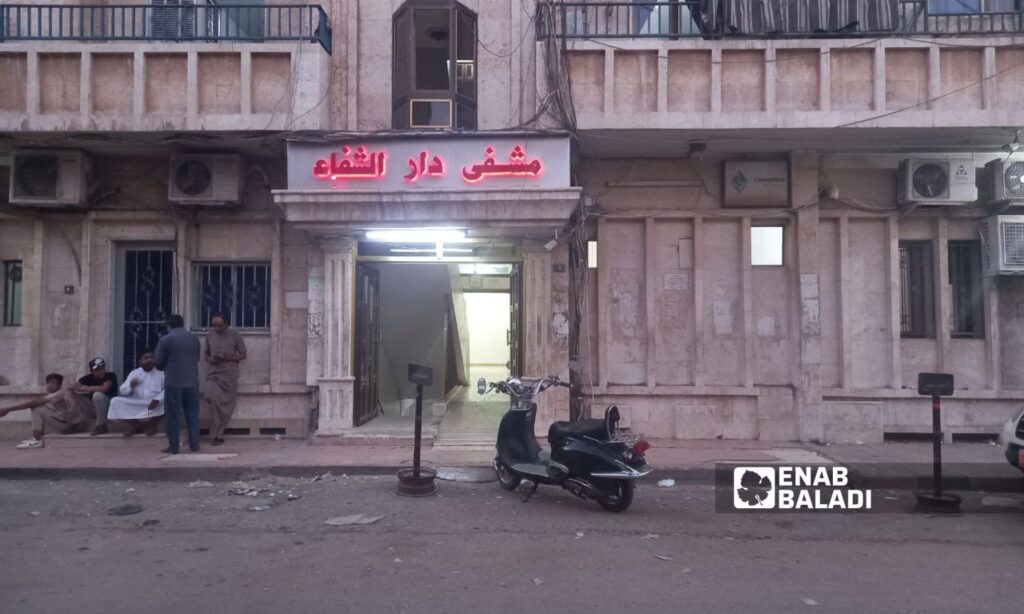Qamishli – Rita Ahmed
Anas al-Khalil had to transfer his six-year-old son to the private al-Salam Hospital in the city of Qamishli in an emergency condition due to his deteriorating health condition.
After examination by the emergency department doctors, the child needed to stay for three days in the hospital because he was suffering from a blood infection and needed to be monitored at a cost that reached 100,000 Syrian pounds per night, not including the price of the medicine.
The costs of purchasing prescription medications for the child during the three days reached 90,000 pounds, which he consumes every six hours, equivalent to a total of about 360,000 pounds per day.
The trading rate of the Syrian pound against $1 reached 13,450 on September 27, according to the S-P Today currency website.
Six hospitals without supervision
A number of residents of Qamishli in al-Hasakah governorate, northeastern Syria, complained about the high fees for services provided in the children’s department in the region’s private hospitals amid the economic and living deterioration that residents are suffering from.
The six private hospitals in the area controlled by The Autonomous Administration of North and East Syria (AANES) take advantage of the lack of organized oversight of the private medical sector, which allows them to impose high fees and costs that exceed the people’s capabilities.
The average cost of examination in the children’s department in these hospitals is about 60,000 pounds.
Naima al-Saleh of Qamishli city considered that private hospitals were for profit and inhumane purposes, adding that most people go to them despite their weak financial capabilities due to public hospitals’ lack of full services and care.
Al-Saleh treated her eight-year-old son due to his high temperature, and he had to stay in the pediatric first aid department for two hours, for which she paid 275,000 Syrian pounds, during which the child received an examination by a specialist doctor, a saline serum, and some simple medications.
Hospitals have a different opinion
The director of a private hospital in Qamishli, who requested that his name not be mentioned for personal reasons, told Enab Baladi that people’s complaints regarding the high fees for medical services “do not generalize” to all hospitals.
The doctor added that some hospitals may provide services free of charge to certain categories of people who are unable to afford them, up to the point of performing surgery for free.
At the same time, he attributed the reasons for the high costs of some services to the many difficulties facing the work of hospitals, represented by the difficulty of obtaining medicines and their monopoly if some of them run out in the markets.
Some devices may also need maintenance, which sometimes requires transporting them to Damascus for repair and incurring costs, given that they rely heavily on fuel to generate power in light of frequent, long-hour power outages.
Some cities and villages of al-Hasakah governorate are considered outside the areas covered by humanitarian and medical organizations, while the activity of some of these organizations is limited to types of medicines and simple medical services.
The regions of Syria, regardless of the controlling authorities, are suffering from deterioration in the medical sector.
The United Nations Office for the Coordination of Humanitarian Affairs (OCHA) documented in a report the health sector crisis in Syria for the year 2022, pointing out that a large percentage of health centers are either out of service or partially halted.
The number of people in need of health care reached 15 million, in addition to 6.9 million displaced people inside Syria and 5.6 million refugees in neighboring countries, as of the date of the report’s issuance on January 25.
The infrastructure for basic health services, such as hospitals and health centers, requires rehabilitation and maintenance.

